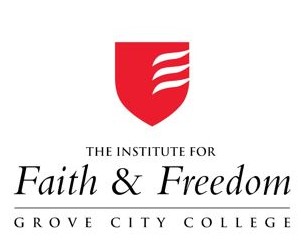DIANE MEDVED: The Significance of Seven

We’re coming to a time of completion—of this election cycle, and, we hope, the end to a very strange period of months in which we withdrew from each other due to a pandemic. As the days grow shorter and we feel the change of seasons, we realize that the year 2020, which seemed to stand for clear-sightedness and a new decade, was really more the difficult ending to the first two decades of the 21st Century.
Completion as a concept is represented by a very different number: seven. It’s a number with meaning across time and place, laden with psychological, spiritual and religious associations.
Seven is the number that indicates a totality, a sense of satisfaction and accomplishment. Our days could have been organized in any configuration, but the bible provided the concept of a seven-day week, crowned with Sabbath rest after six days’ work. Christians find many references to the number, as the four corners of the earth plus the Trinity, and as a theme in the Book of Revelation. Muslims walk around the Kaaba in Mecca seven times, and find “seven heavens” in the Koran. Hindus hold there are seven higher worlds, and seven underworlds.
Most people know the Ten Commandments as Jewish moral directives, but fewer realize that the Torah actually lists seven guidelines for all humanity, called the “Noahide laws.” Many of the seven do overlap with the Ten Commandments, like prohibiting idolatry and blasphemy, sexual immorality, murder and theft. But the world is also admonished not to eat the limb of a living creature, in order to promote kind treatment of animal life. And societies must also set up fair and impartial judicial systems.
Psychologists have found that most people can take in seven words in a short-term memory “gulp,” and retain a series up to seven numbers. That’s why most ads grab you with seven or fewer words, and why phone numbers were—until area codes—seven digits.
Research repeatedly shows 7 is the world’s favorite number. Math writer Alex Bellos polled more than 44,000 people, and found 7 reigns everywhere, perhaps since it’s ubiquitous. Slot machines win with lucky 7, and quick to come to mind are the seven dwarfs, Seven Wonders of the World, and James Bond’s 007. Bellos let respondents volunteer any favorite, and if they weren’t just the lone digit, many included 7—the most prime of the first 10 numbers. (By the way, I like the name of Bellos’ 2010 book: Here’s Looking at Euclid.)
Is there a “seven-year itch” when marital partners tend to stray? The 1955 Marilyn Monroe movie popularized the concept, and a census report at the height of the divorce craze (1981) validated trends showing 7 years as the median duration for marriages that ended in divorce. My decades studying the issue suggest things have changed since then. When the average age at marriage was in the couple’s early 20s, seven years in was often the most stressful period, with responsibility for young children, career and financial pressure dovetailing. An affair then might seem an appealing escape. But with women spending more time on career prep and advancement, the average age of first marriage climbed. Marriage itself became optional, and expectations soared. While it’s a myth that there was ever a 50% divorce rate, now unhappy partners are less willing to stick it out and find more support for splitting. (But if you’re itching, please read my book Don’t Divorce!)
Other significant sevens: The soft drink 7-up apparently came from its original seven ingredients, one of which was (until 1948) the mood lifter lithium. There are 7 colors of the rainbow. And, like refracted light spans the spectrum, Pope Gregory named the range of behaviors, from seven godly virtues to seven deadly sins. (My favorite is sloth.) The virtues are chastity, temperance, charity, diligence, patience, kindness and humility. Some lists swap out entries, substituting faith, hope, fortitude, justice, generosity, modesty or prudence. The more the better, I suppose.
Here’s hoping that the Jewish New Year just started brings the world a peaceful completion to its turmoil and woes. And that our internal divisions and schisms can be healed by summoning the uniting concept of the number seven.
—
Diane Medved, Ph.D. is a psychologist, speaker and author of seven books, most recently Don’t Divorce: Powerful Arguments for Saving and Revitalizing Your Marriage. She and her husband, radio talk show host (770 AM, noon to 3 pm daily) and author Michael Medved have lived in the same house for 24 years and are delighted to live near their three grandchildren, including the newest, baby Micah, born June 11. Reach Diane at DianeMedved.com.





















